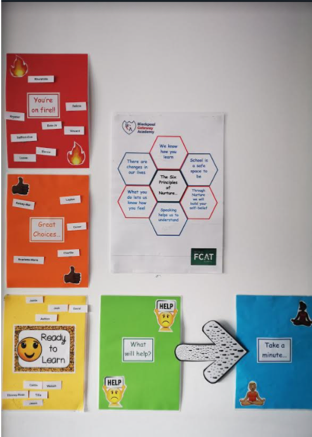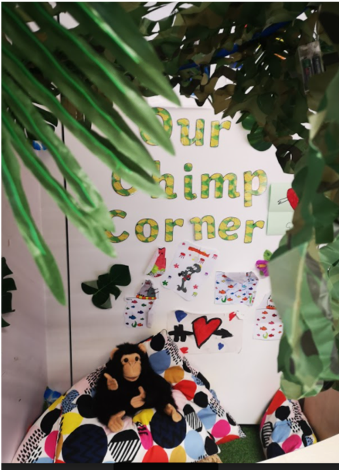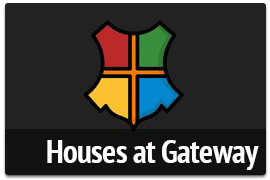Nurturing behaviour in practise
at Blackpool Gateway Academy
At Blackpool Gateway Academy, we are a nurturing school and believe that nurture should be at the heart of every child’s education. We believe the atmosphere of school and the classroom climate is controlled by the adults within it. We believe children respond better to support, encouragement and reward rather than punitive measures. We treat all children fairly and apply this behaviour system in a consistent way. At Gateway, we reward good behaviour, as we believe that this will develop an ethos of nurture, kindness, fairness and a sense of team and peer support.
Our positive reward system is designed to promote good behaviour, rather than merely deter negative behaviour. We do this by encouraging pupils to understand that they have choices in their behaviour and that inappropriate actions will have consequences. We also encourage children to take responsibility and ownership of their own behaviour.
We Aim…
- To encourage a calm, purposeful and happy learning environment within our school.
- To nurture positive, caring attitudes towards everyone, where achievements at all levels are celebrated and valued.
- To provide opportunities for children to develop their independence, self-discipline and a sense of responsibility towards themselves and others.
- To develop a consistent approach for promoting positive behaviour throughout the school.
- To ensure that expectations of behaviour are clearly communicated to children.
- To establish a coherent and fair reward system that acknowledges and celebrates good behaviour.
- To establish procedures which determine a clear and consistent approach to unacceptable and disruptive behaviour.
- To raise self-esteem and teach positive behaviour through the content and delivery of the curriculum.
- To ensure the development and progress of pupils with behavioural needs are regularly reviewed with staff and parents.
- To effectively manage incidents of bullying, sexism or racism if and when they occur.
Our Behaviour System
How does it work?
 How this looks in action:
How this looks in action:
Children have their own individual name tag. Each morning children will decide if they are ‘Ready to learn’ (yellow) or if they need to move their name over to ‘What will help?’ (green). This is initially decided by children guided by nurturing conversations and circle time in the morning before learning begins.
At Gateway, we believe that children need to have their initial needs met before they can begin to learn effectively (Maslow’s Hierarchy). Children who are ready to learn - move themselves to yellow and begin their daily journey from Ready to Learn (yellow) to ‘Good Choices’ (orange) and finally moving to ‘On fire’ (red). As children demonstrate desired behaviours, they are rewarded with DOJO points.
What happens if children are not ready to learn?
If children are not ready to learn they move themselves to ‘What will help?’ (green). This is an indicator to staff that action needs to be taken. Whether that is a nurturing conversation, additional 1:1 support, a walk and talk or something as simple as breakfast and some additional attention then we provide this for them.
Children are aware of the different things they can choose from to discover ‘What will help?’ And occasionally depending on their age and stage may need prompting.
Having this stage posed as a question with ‘What will help’ options is a proactive approach to behaviour management and empowers children to take positive action until they feel ready to learn. Any children who are ‘On fire’ at the end of each day will earn 5 additional dojo points!
What happens if children are STILL not ready to learn?
Children are then given the option of ‘Take a break’ (blue). This is also seen as a positive step and children are rewarded for being proactive and asking for a break (or if the situation presents itself) following the teacher's direction to take a break and take that time to regulate. This is where ‘Chimp Corner’ is used.
As this system becomes embedded children are actively encouraged to move their name around the behaviour system dependent upon how they feel.
Can Teachers move children around the behaviour system?
Sometimes children need adult support, instruction or prompting in order to be able to self-regulate. A simple reminder/rhetorical question of, ‘Do you need to peg down?’ is often enough for children to be able to regulate and ‘check -in with their emotions. If children are visibly dysregulated, staff understand which battles to pick and will act accordingly based on individual children’s needs and Boxall profiling.
Children do not lose dojo points for moving down - but equally understand the end goal is to move up through the system to gain further reward.
What is Chimp Corner?
 Based on the work by Prof Steve Peters, we have developed a break out space in each classroom which we call Chimp Corner.
Based on the work by Prof Steve Peters, we have developed a break out space in each classroom which we call Chimp Corner.
This enables children to learn the skills of self-regulation, walking away and positive mind  management.
management.
A child using a chimp corner is seen as a positive step and children are rewarded accordingly for having the self-regulation that they need some time out.
In addition, PSHE and nurture sessions are regularly conducted around this text which details the different areas of the brain which help children understand and manage their emotions, thinking and behaviour. In addition, each classroom has Chimp Mascots which are used for role play and further intervention work.
Our children become quite attached to their Chip mascot and vote for a name at the beginning of each year.
Children can now often be heard explaining their behaviour using the chimp analogy as a way of understanding and taking responsibility for their actions.
These systems are becoming embedded at Gateway and have already had significant impact with children who have SEMH/SEND and also with children who may have experienced trauma. In addition this has also promoted values of empathy amongst their peers and had increased a culture of peer support which is woven into each session.
What is the Impact?
By using this system consistently, across school and in all key stages, behaviour is being managed more effectively in class. Class based staff are empowered and take ownership and pride of good behaviour in class. This whole school approach allows for all children and staff to develop a cohesive approach to whole school behaviour patterns with no surprises.
If behaviour does go awry it is the responsibility of the Class Teacher to manage which allows those restorative and repairing conversations to happen in the moment. This builds a positive trusting relationship with children and staff and reduces anxiety for the children as each session is seen as a new start. In addition, behaviour support staff are on hand if necessary but we believe removal from an inclusive classroom is a last resort.
Houses at Gateway
In September 2020 we introduced the concept of Houses at Gateway. To find out more please click the button below:
